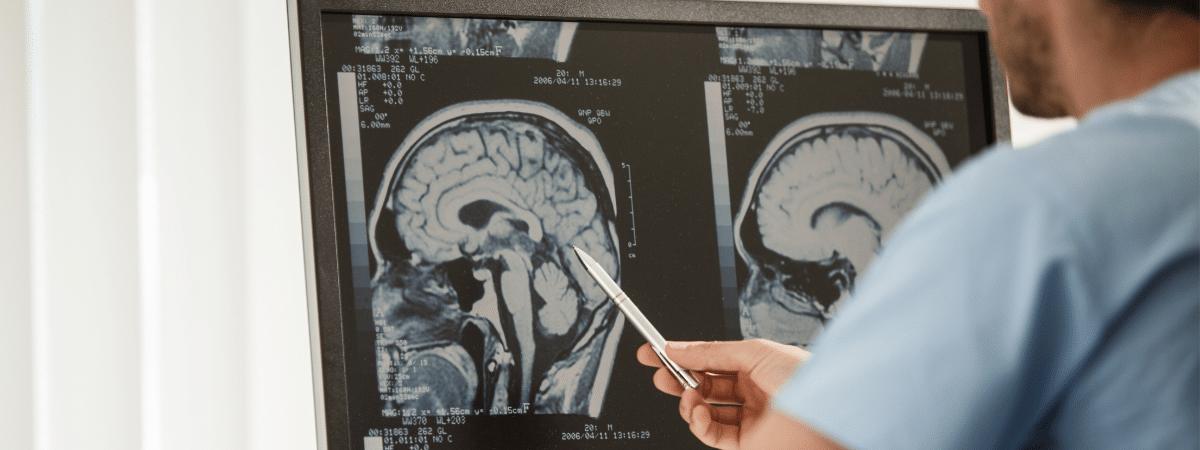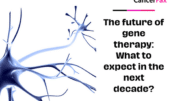Disruption of CD5 on CAR T Cells Enhances the Effectiveness of Anti-Tumor Treatment
CAR T-Cell therapy in the treatment of cancer
A preclinical study conducted by researchers at the University of Pennsylvania’s Perelman School of Medicine and Abramson Cancer Center suggests that the use of CRISPR-Cas9 technology to disable the CD5 gene, which encodes a protein present on the surface of T cells, could significantly enhance the efficacy of CAR T cell therapy in treating various types of cancers, including solid tumors.
CAR T cells are genetically modified T cells designed to selectively target and eliminate certain antigens present on cancer cells. They have had exceptional outcomes in certain individuals with hematological malignancies. However, their efficacy against other types of malignancies, specifically solid-tumor cancers like pancreatic cancer, prostate cancer, and melanoma, has been subpar. Scientists have been investigating methods to enhance the efficacy of CAR T cell treatment.
The research, which was published today in the journal Science Immunology, indicates that disabling CD5 could be a promising approach. Clarifying the protein’s previously ambiguous function, the researchers discovered that it acts as a potent immunological gatekeeper, regulating the efficiency of T cells. Demonstrating the removal of it significantly improved the antitumor effectiveness of CAR T cells in many preclinical cancer types.
In preclinical models, we have found that deleting CD5 significantly improves the effectiveness of CAR T cells against various types of cancer,” stated Marco Ruella, MD, a Hematology-Oncology assistant professor, researcher at the Center for Cellular Immunotherapies, and scientific director of Penn Medicine’s Lymphoma Program. “The significant outcomes we witnessed in various preclinical models indicate that the elimination of CD5 could serve as a universal approach to improve the functionality of CAR T cells.”
The primary author of the work is Ruchi Patel, PhD, a recent graduate student from the Ruella Laboratory.

Introduction to immune checkpoint mechanisms
Immune checkpoint mechanisms serve as regulatory switches to prevent excessive immune responses that could lead to unintended harm to surrounding tissues. Cancers frequently exploit these systems to inhibit anticancer immune responses.
Scientists have identified several important immune checkpoint proteins, including PD-1 and CTLA-4. The first effective immune checkpoint inhibitor medications, including ipilimumab, nivolumab, and pembrolizumab, targeted these proteins. Researchers are currently studying the genetic deletion of these proteins to improve CAR T cell therapies. However, scientists speculate that there may be more immune checkpoint mechanisms that malignancies utilize, which have not yet been identified.
Approach to prioritizing CD5
Prior to investigating the function of CD5 in CAR T cells, the researchers mostly concentrated on CD5 as a target for tumors. T-cell lymphoma and T-cell acute lymphoblastic leukemia are rare blood malignancies that lack effective immunotherapy treatments. In both cancers, the CD5 protein is abundantly present on malignant T cells. Specifically, none of the now accessible commercial CAR T cell treatments have been authorized for the treatment of T-cell lymphomas.
Ruella’s team initially developed CAR T cells that specifically target CD5-expressing cells for the treatment of malignant malignancies. However, they soon recognized the necessity of removing CD5 in CAR T cells to prevent them from attacking each other, as CAR T cells inherently produce CD5.
With the help of CRISPR-Cas9 technology, the CD5 gene was cut out of CAR T cells. This stopped the modified cells from attacking each other. Researchers found that taking out CD5 from CAR T cells made them much more effective in lab tests using different types of T-cell cancer.
Still, the researchers quickly found that getting rid of CD5 could greatly increase the anti-tumor effects of several CAR T products, which could target both solid and liquid tumors. Researchers saw similar increases in effectiveness when they used the CD5-knockout method on CAR T cells that were designed to target different types of tumors that do not express CD5, like B-cell leukemias, lymphomas, pancreatic cancer, and prostate cancer.
They noted enhancements in the proliferation and survival of the CAR T cells, together with an augmented ability to kill cancer cells. These effects were even more pronounced than those reported when the immunological checkpoint protein PD-1 was deactivated. Additionally, the researchers discovered that the elimination of CD5 could enhance the effectiveness of other T cells in fighting cancer. This further supports the notion that CD5 plays a crucial role as an immunological checkpoint protein in these cells.
The study provided a comprehensive explanation of the molecular mechanisms involved in CD5 knockout. It demonstrated that this process increases the functions of genes associated with T cell activation and the efficacy of cell-killing. The researchers also found a link between lower CD5 expression in T cells and better patient outcomes by looking at a large collection of tumor tissues.
The research progresses to the stage of conducting a clinical study
A Phase I clinical trial for CD5-knockout CAR T cells is about to commence, recruiting patients diagnosed with CD5-bearing T-cell lymphomas. “If the CD5-knockout strategy proves to be safe and effective in these trials, it can be further evaluated for its efficacy in treating a broader spectrum of cancers,” stated Ruella. “We are enthusiastic to witness the translation of this research from the laboratory to clinical practice.”
To obtain additional details regarding cancer clinical trials at Penn Medicine, please refer to the Abramson Cancer Center Clinical Trial Information Service webpage or contact a clinical trial navigator at 1-855-216-0098.
The research received financial support from various sources, including the National Institutes of Health and the National Cancer Institute (R37-CA-262362-02), the Leukemia and Lymphoma Society, the Gilead Research Scholar Award in Hematology, Emerson Collective, the Laffey McHugh Foundation, the Parker Institute for Cancer Immunotherapy, Berman and Maguire Funds for Lymphoma Research at Penn, American Society of Hematology, and viTToria Biotherapeutics.
Dr. Nishant Mittal is a highly accomplished researcher with over 13 years of experience in the fields of cardiovascular biology and cancer research. His career is marked by significant contributions to stem cell biology, developmental biology, and innovative research techniques.
Research Highlights
Dr. Mittal's research has focused on several key areas:
1) Cardiovascular Development and Regeneration: He studied coronary vessel development and regeneration using zebrafish models1.
2) Cancer Biology: At Dartmouth College, he developed zebrafish models for studying tumor heterogeneity and clonal evolution in pancreatic cancer.
3) Developmental Biology: His doctoral work at Keio University involved identifying and characterizing medaka fish mutants with cardiovascular defects.
4) Stem Cell Research: He investigated the effects of folic acid on mouse embryonic stem cells and worked on cryopreservation techniques for hematopoietic stem cells.
Publications and Presentations
Dr. Mittal has authored several peer-reviewed publications in reputable journals such as Scientific Reports, Cardiovascular Research, and Disease Models & Mechanisms1. He has also presented his research at numerous international conferences, including the Stanford-Weill Cornell Cardiovascular Research Symposium and the Weinstein Cardiovascular Development Conference.
In summary, Dr. Nishant Mittal is a dedicated and accomplished researcher with a strong track record in cardiovascular and cancer biology, demonstrating expertise in various model systems and a commitment to advancing scientific knowledge through innovative research approaches.
- Comments Closed
- July 24th, 2024






Cancer treatment innovation, CAR-T cell engineering, CAR-T efficacy improvement, CD5 disruption CAR-T, Enhanced CAR-T therapy, Next-gen immunotherapy, T-cell optimization, Tumor resistance breakthrough
CancerFax is the most trusted online platform dedicated to connecting individuals facing advanced-stage cancer with groundbreaking cell therapies.
Send your medical reports and get a free analysis.
🌟 Join us in the fight against cancer! 🌟
Привет,
CancerFax — это самая надежная онлайн-платформа, призванная предоставить людям, столкнувшимся с раком на поздних стадиях, доступ к революционным клеточным методам лечения.
Отправьте свои медицинские заключения и получите бесплатный анализ.
🌟 Присоединяйтесь к нам в борьбе с раком! 🌟